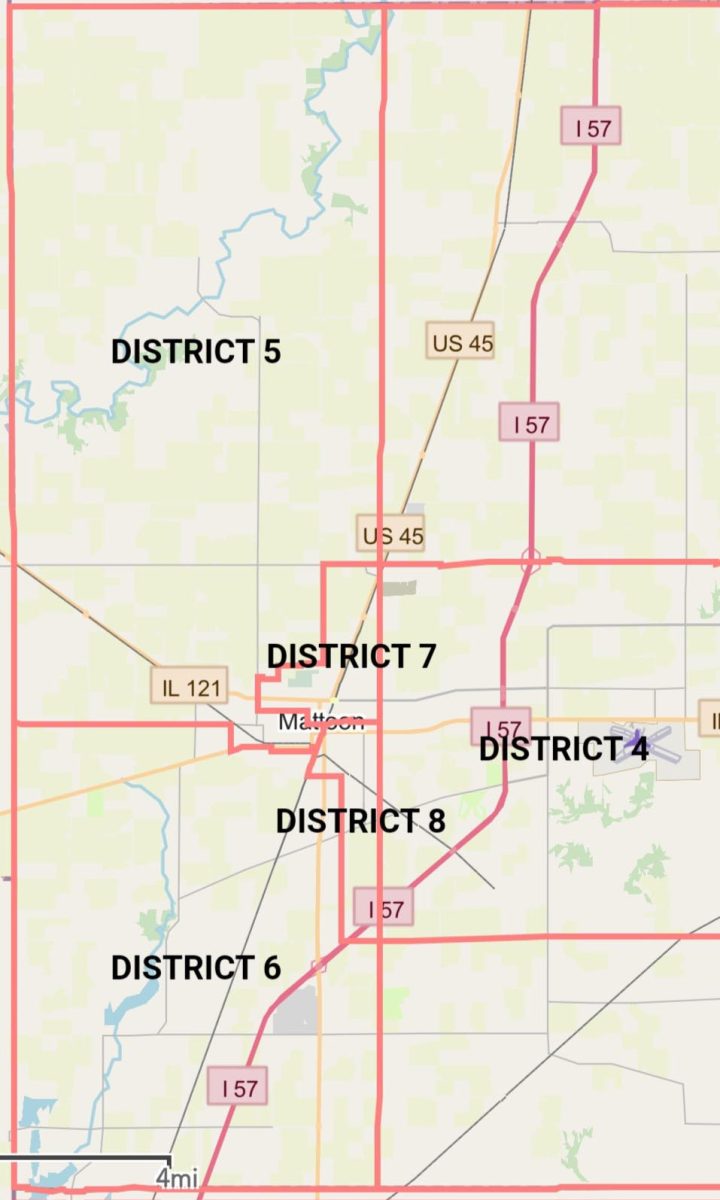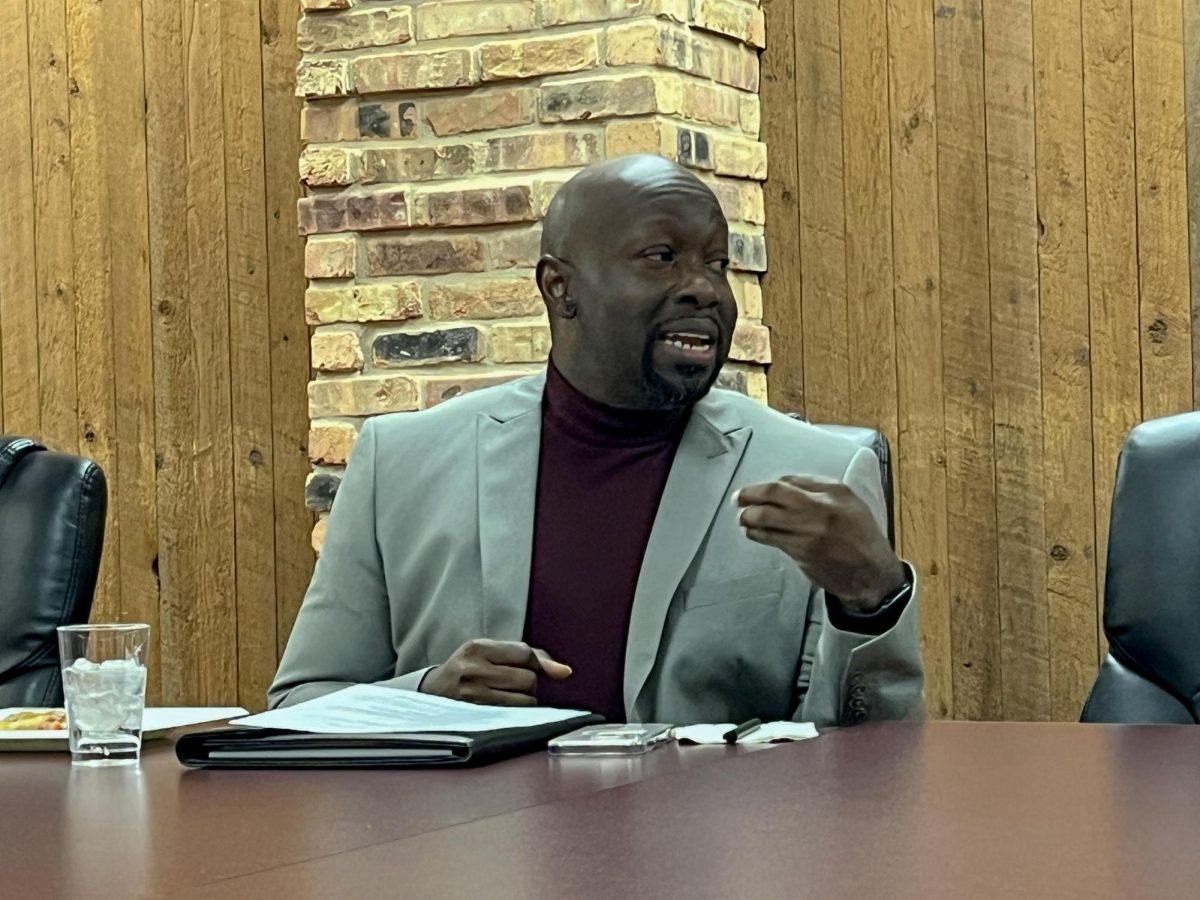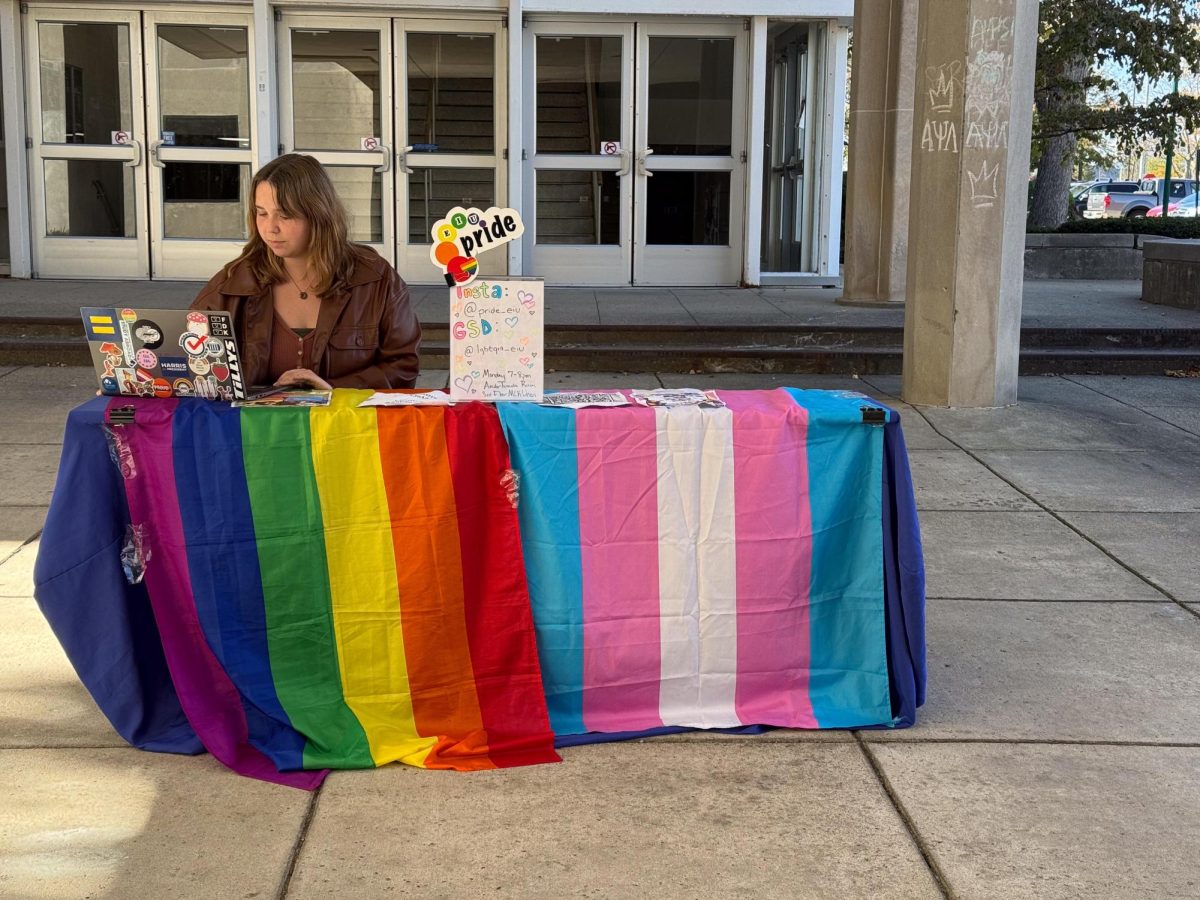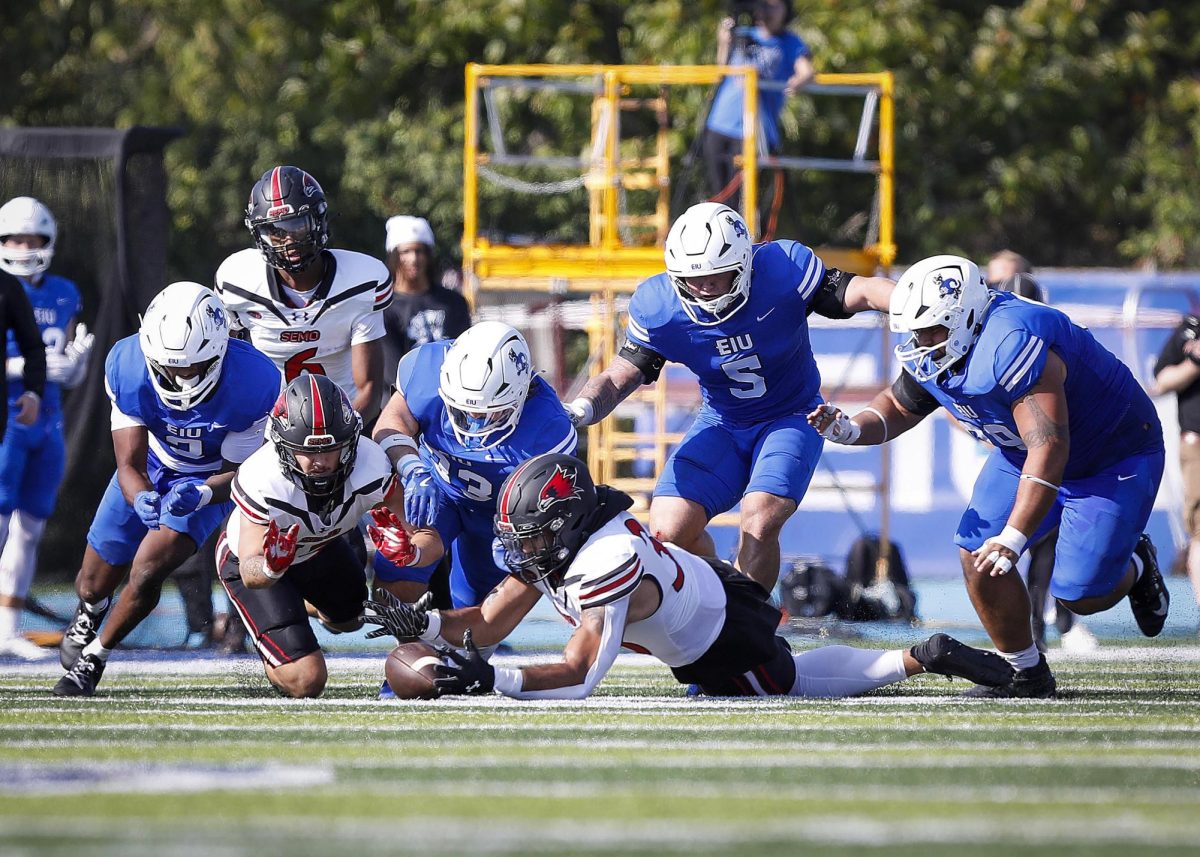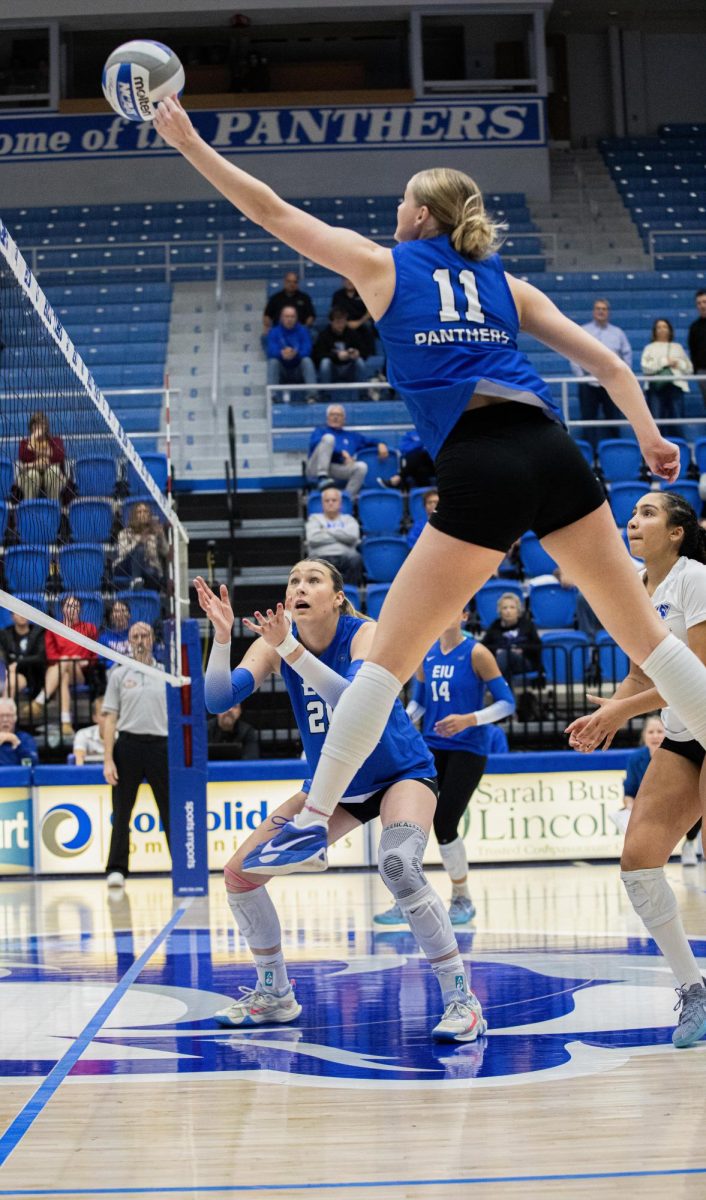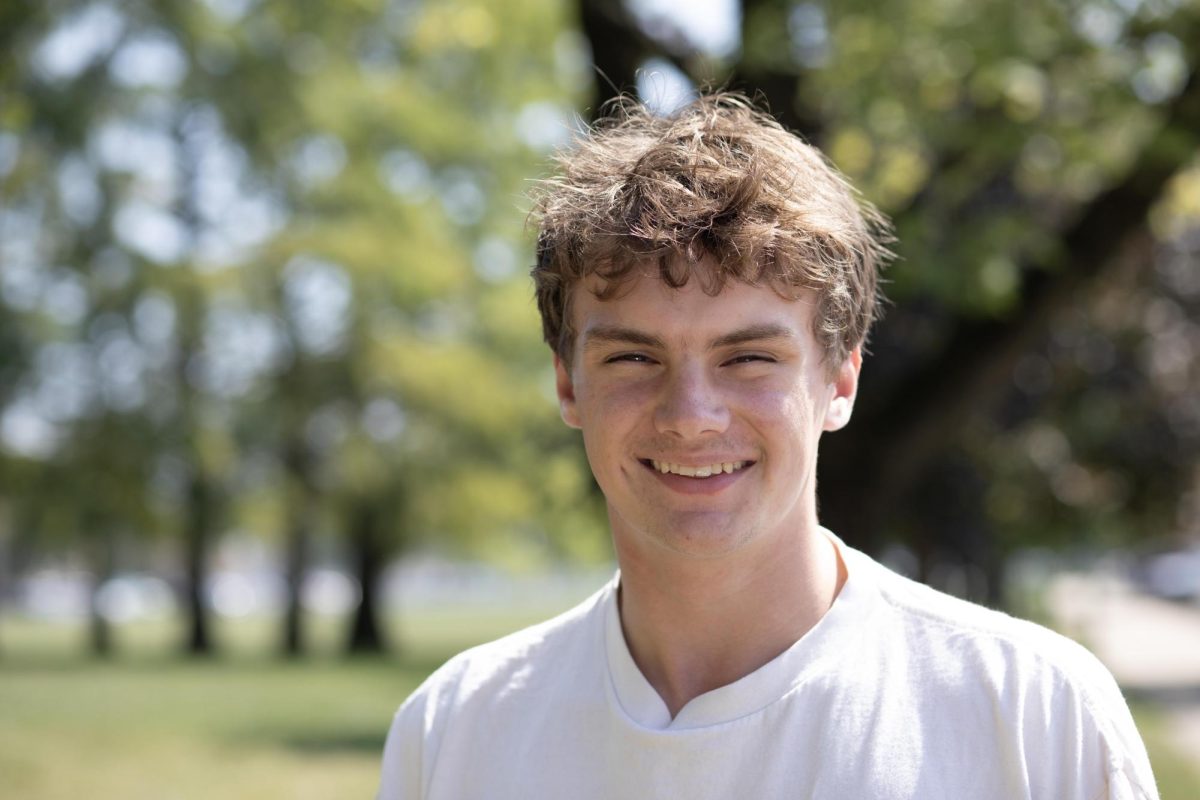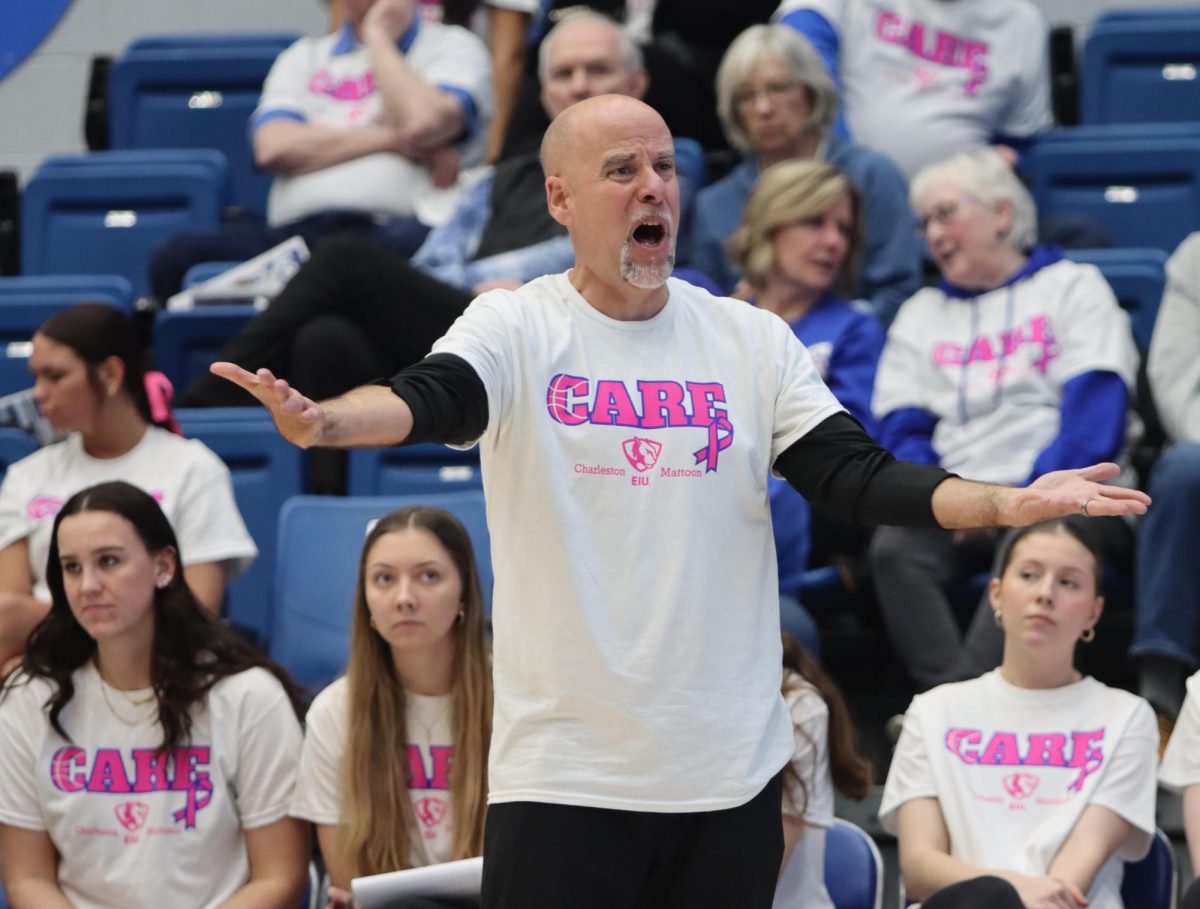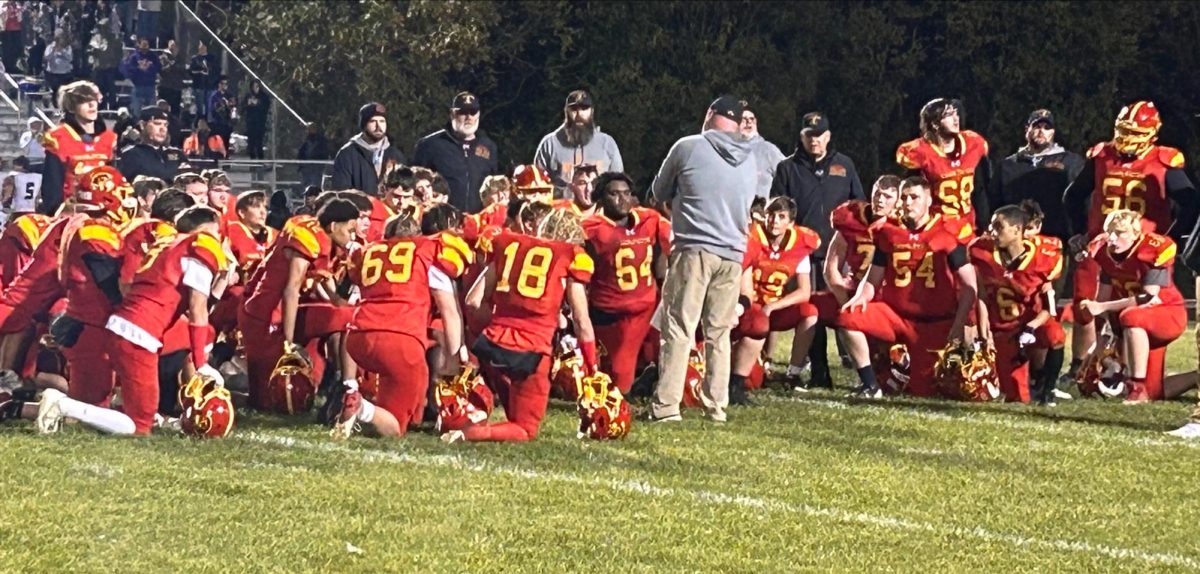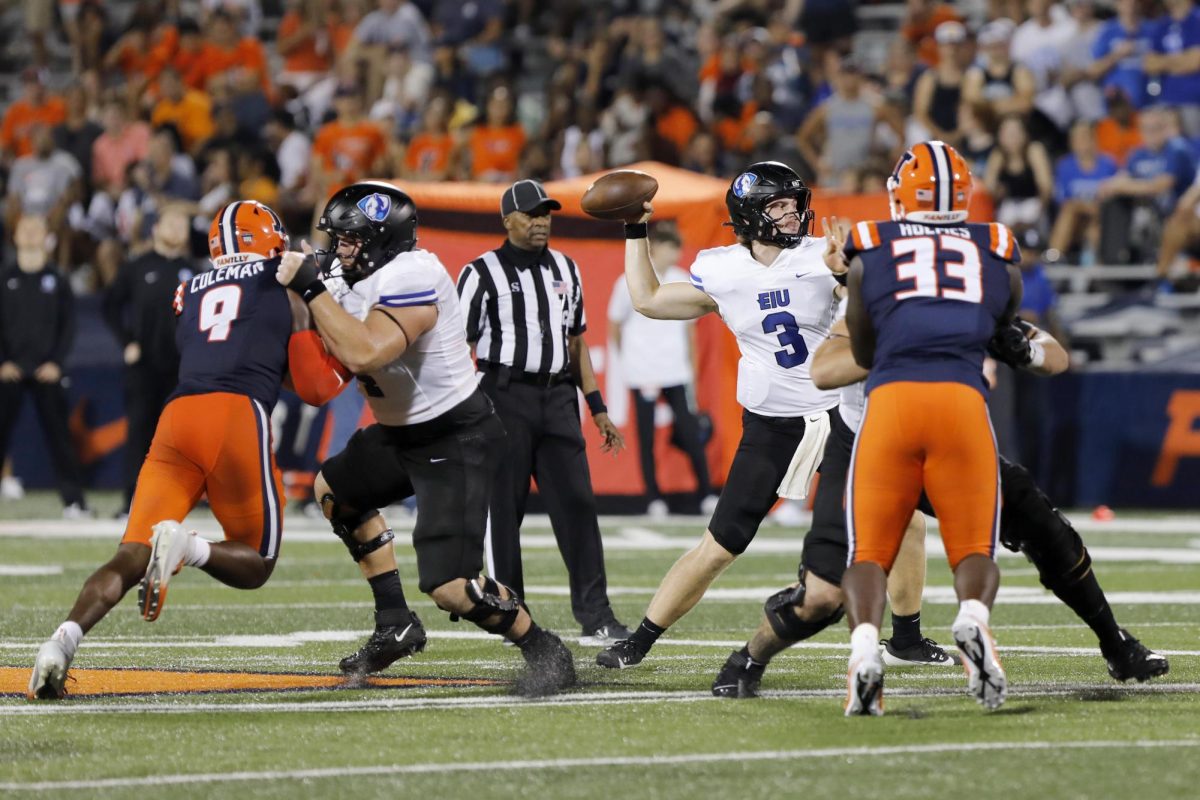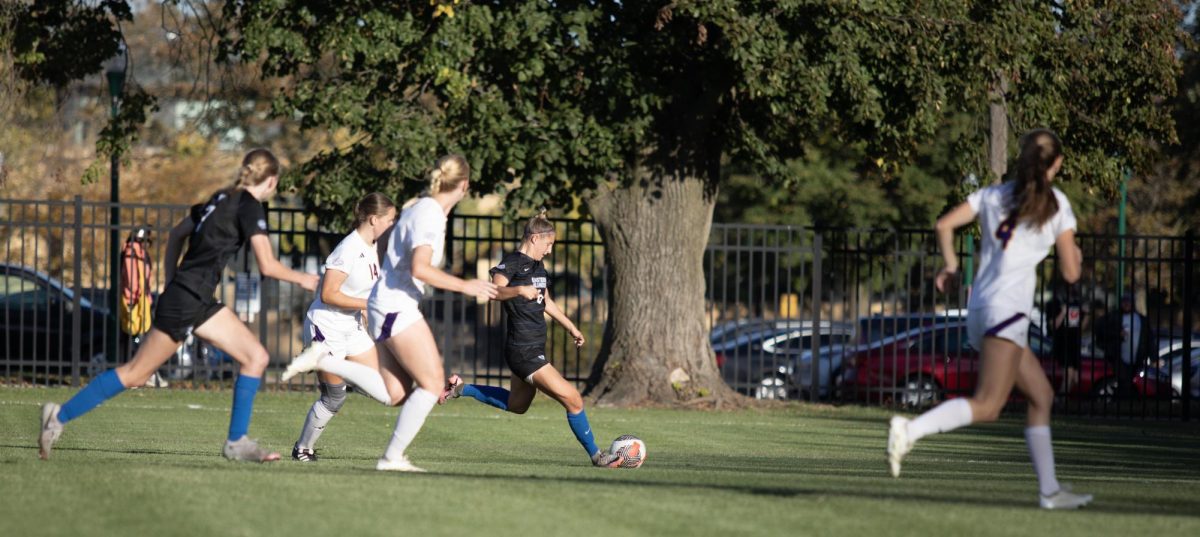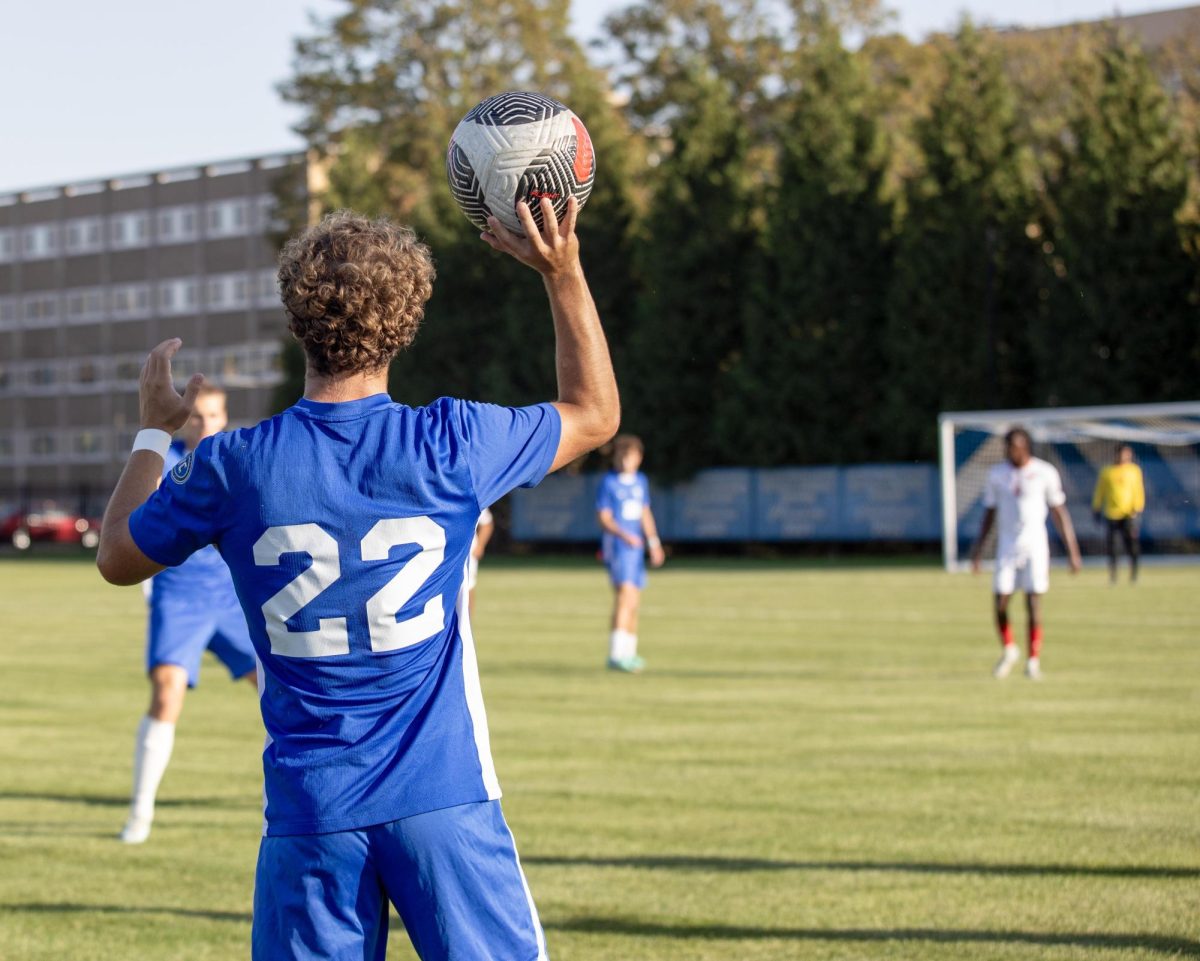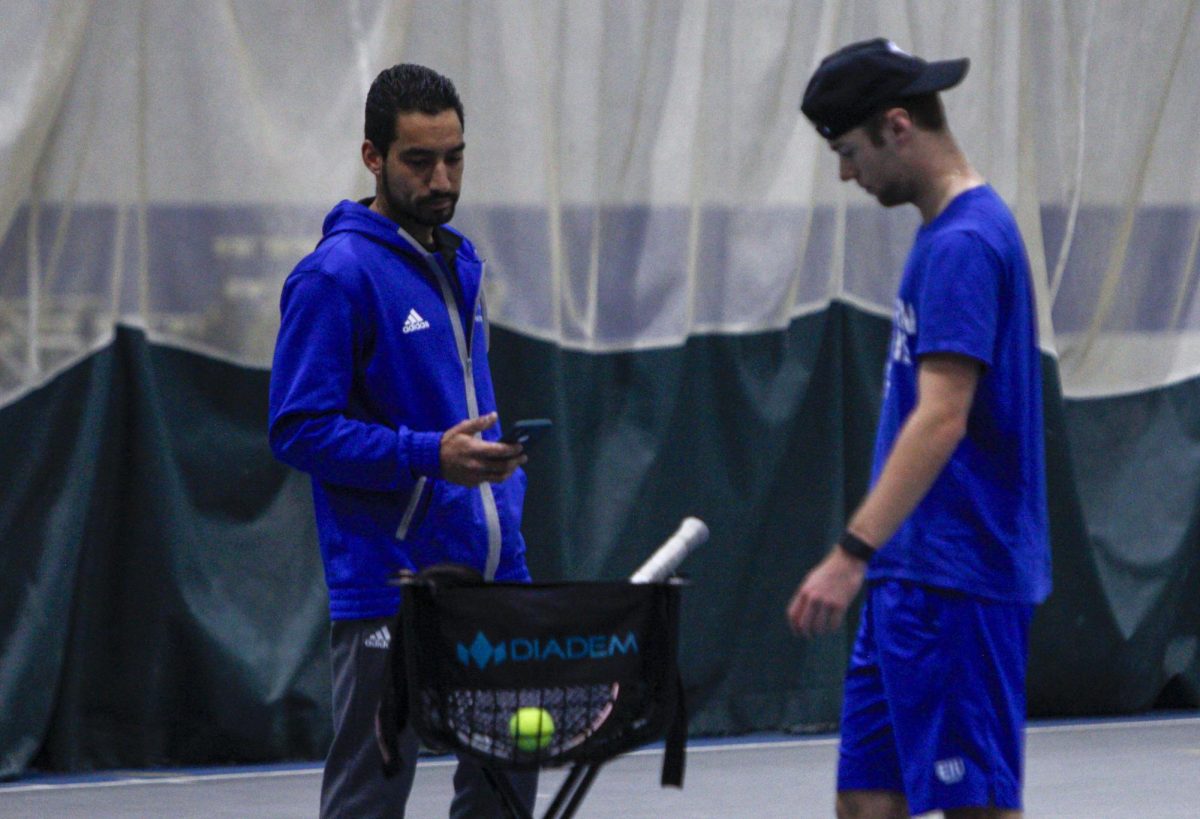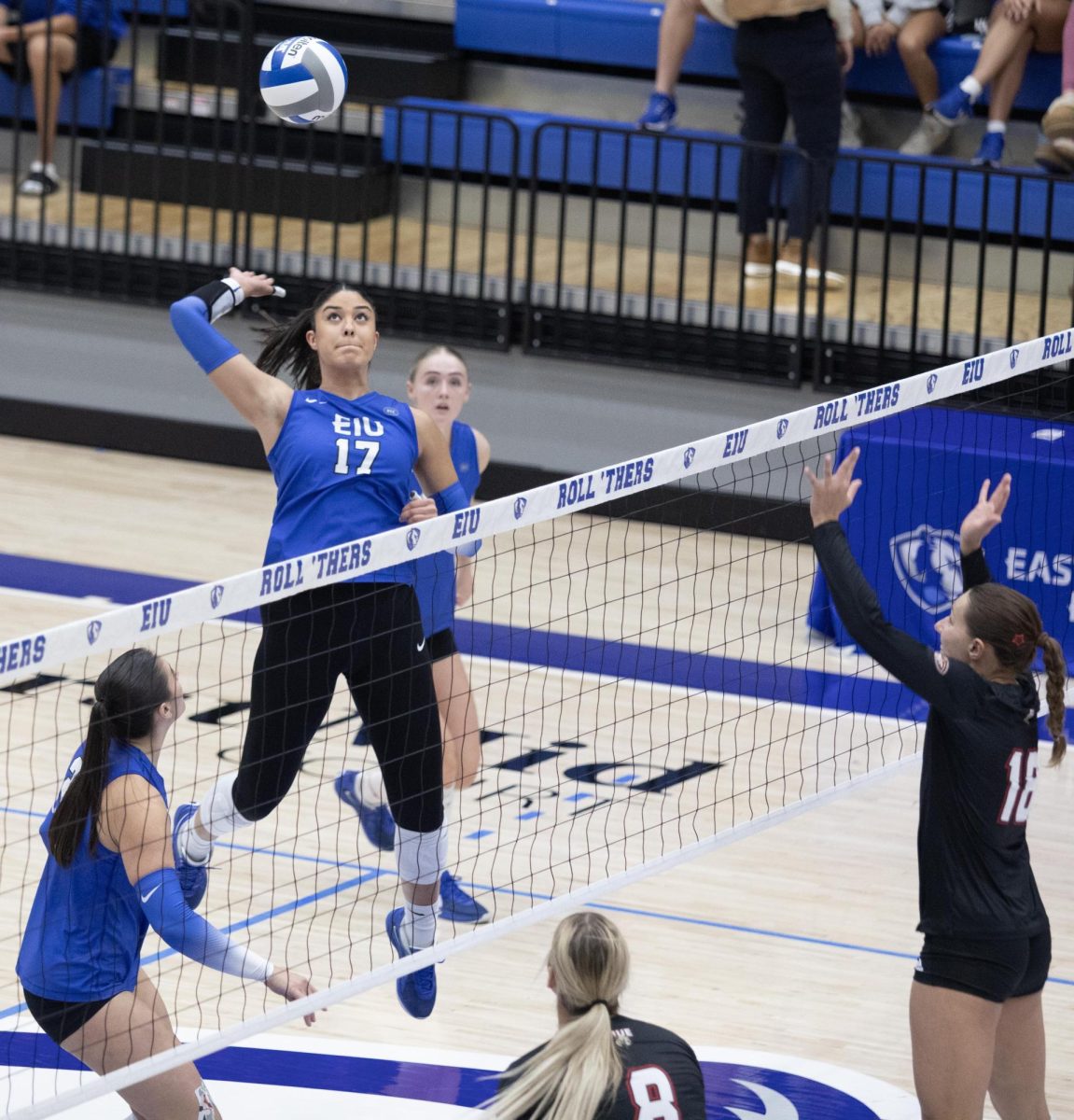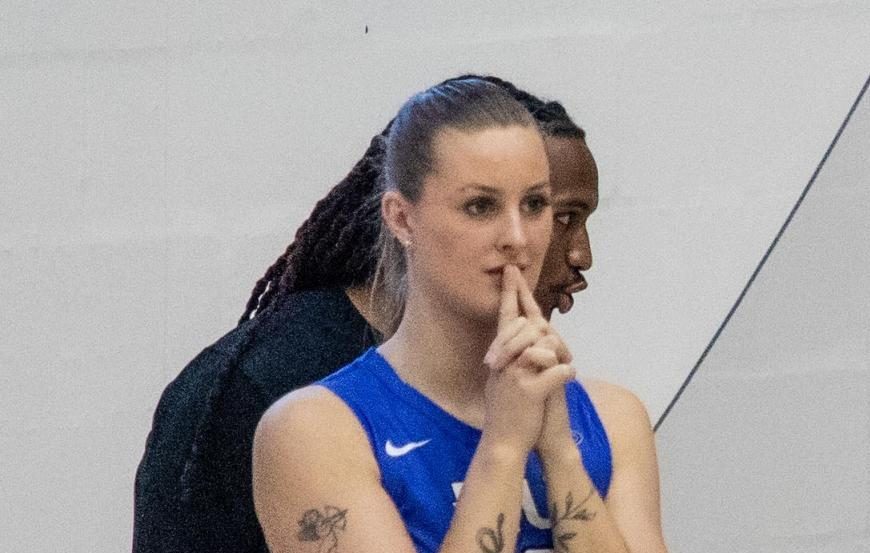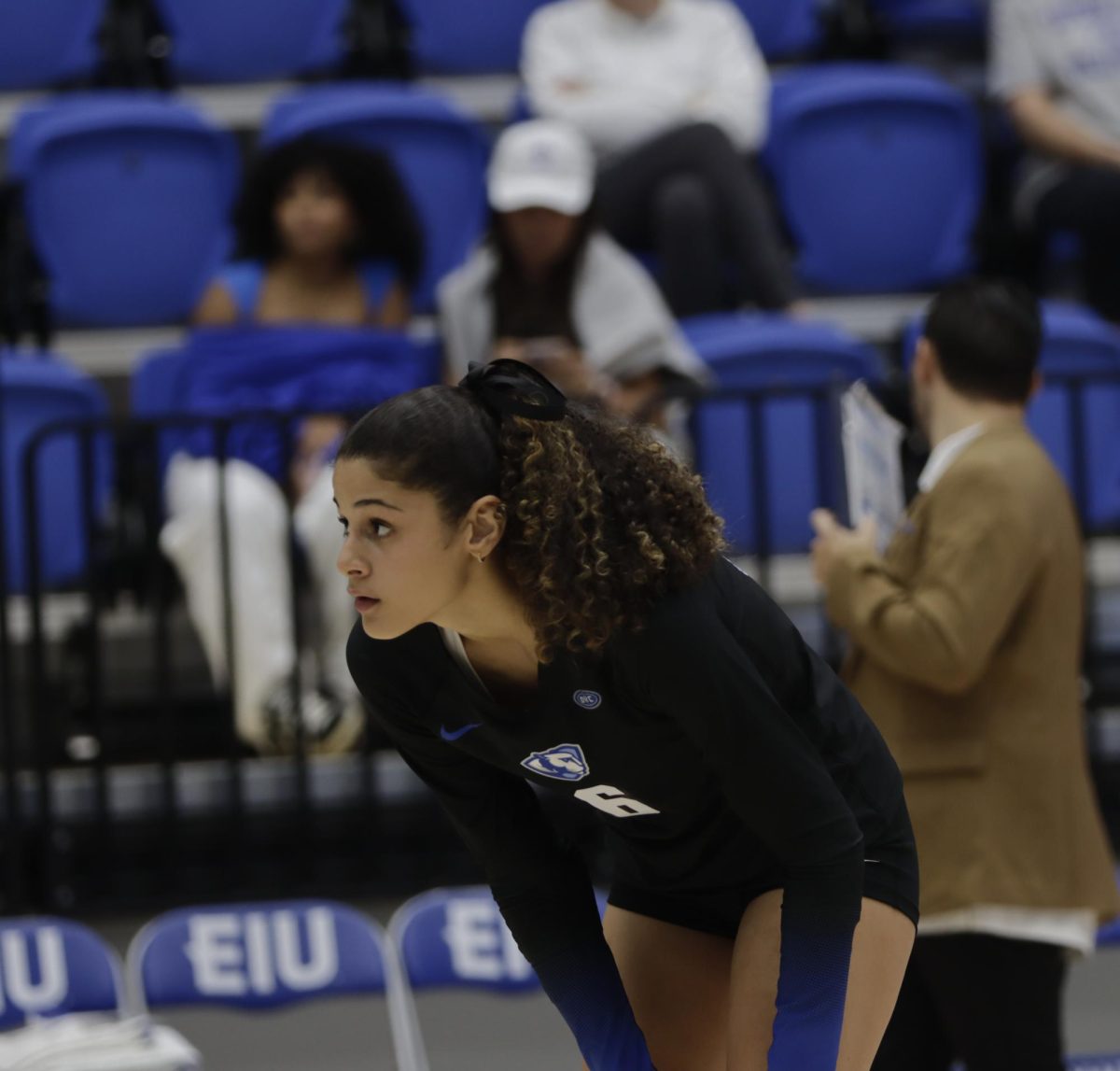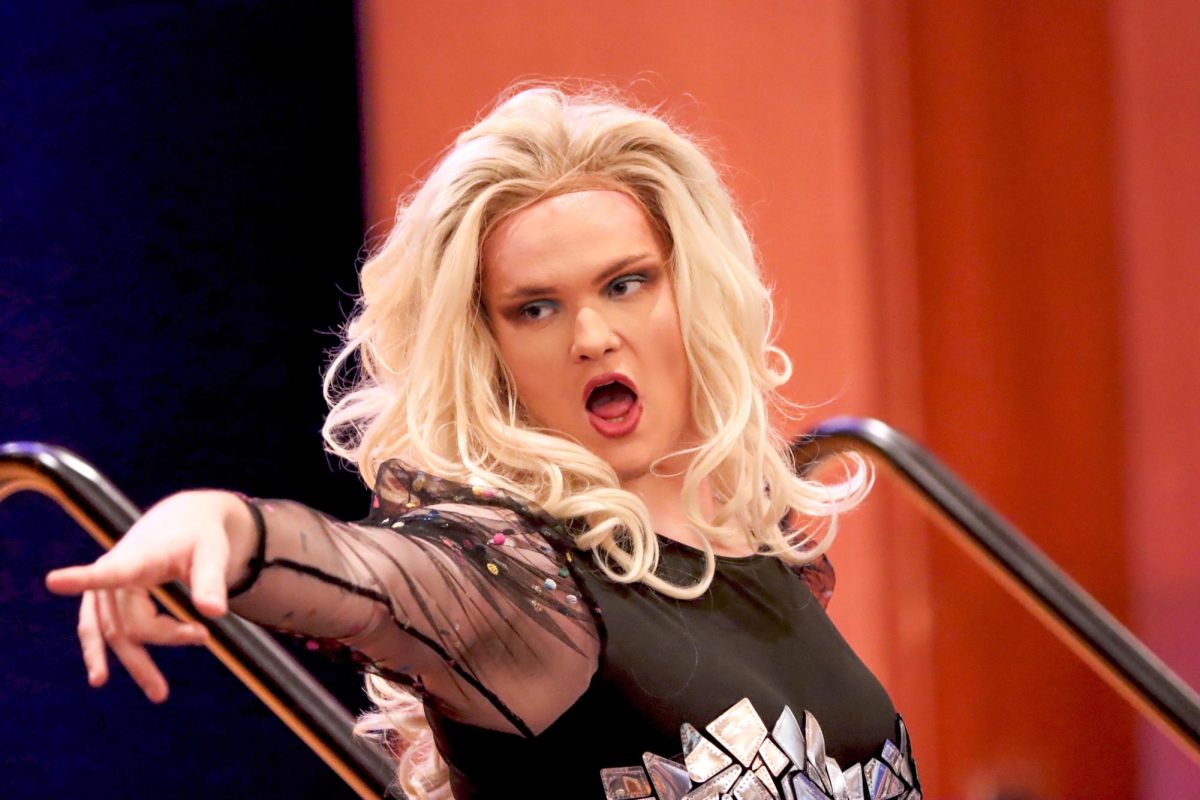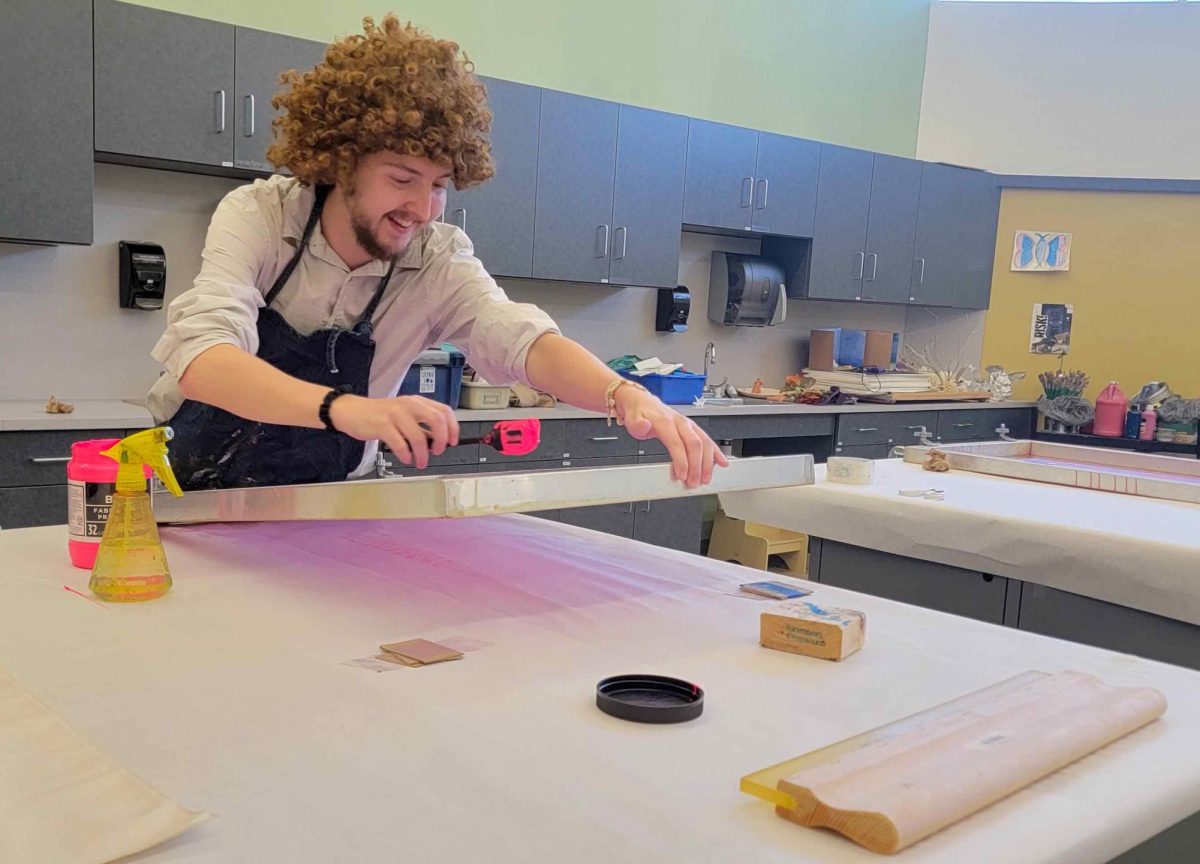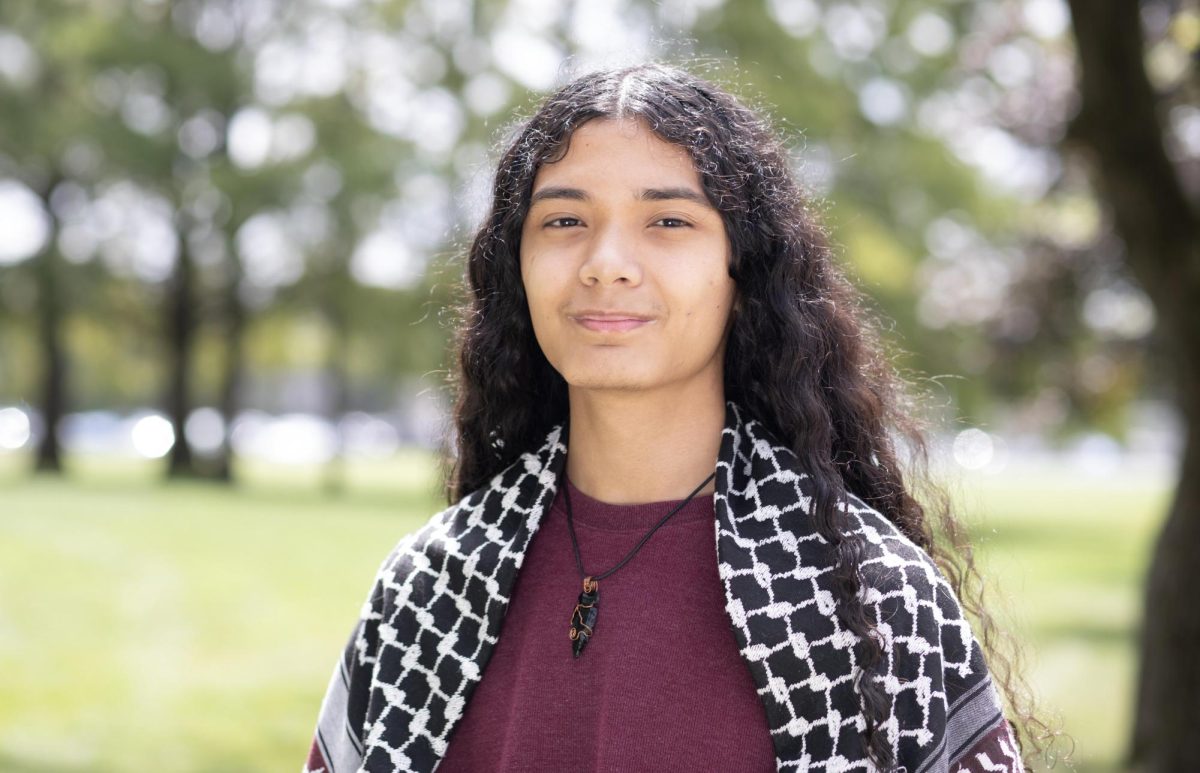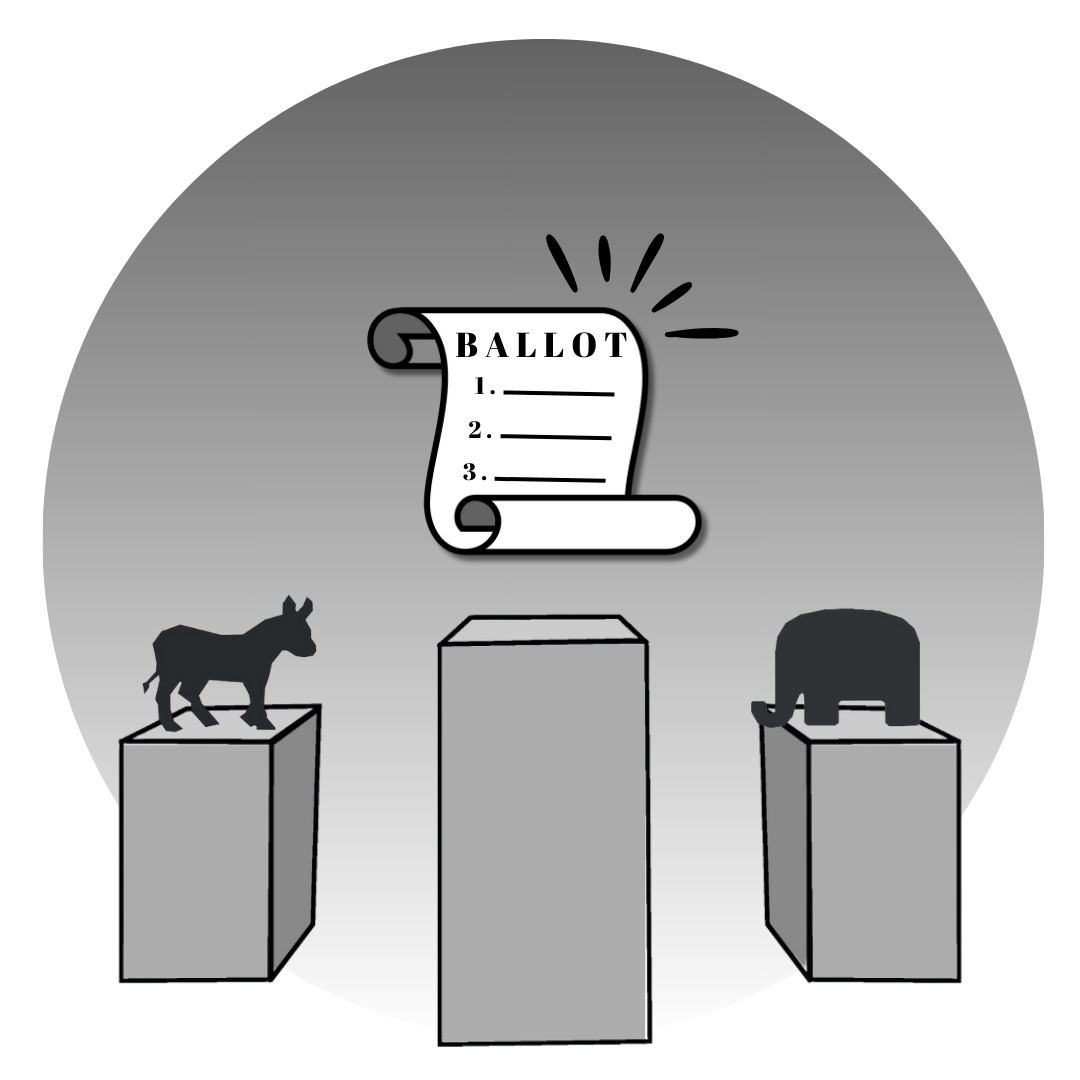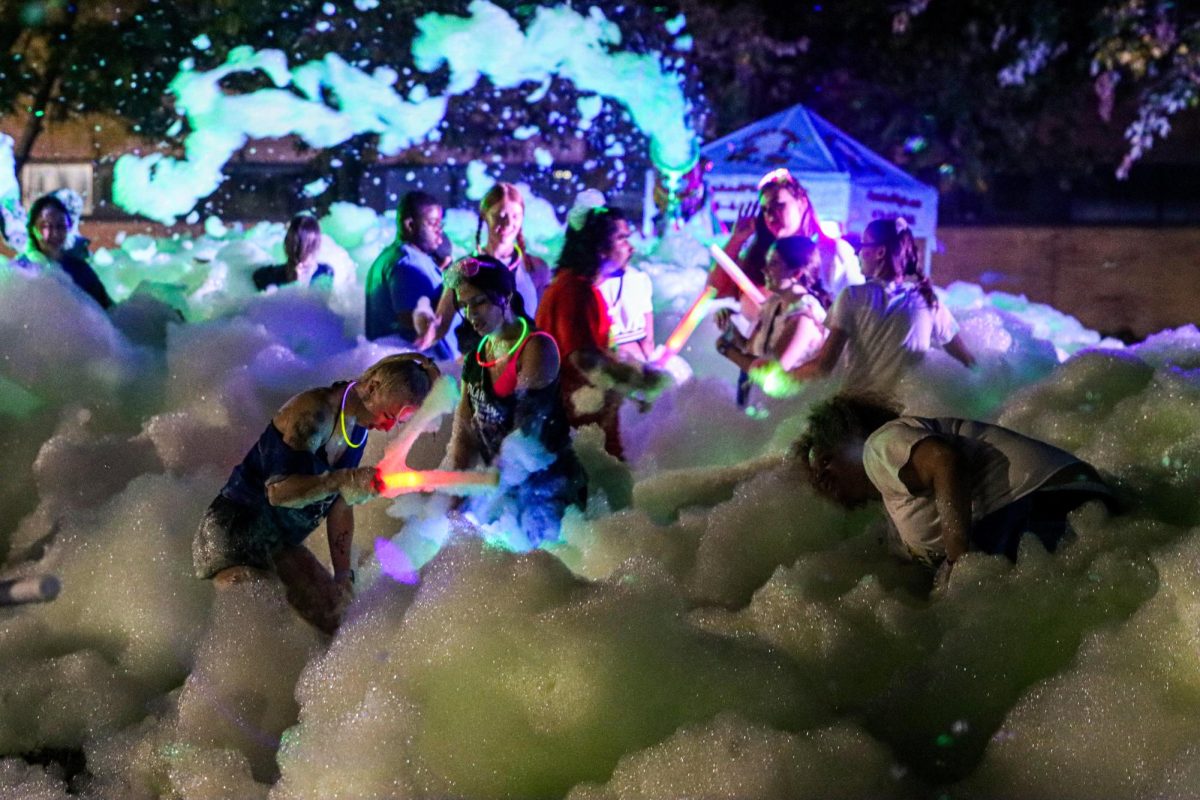Campus struggles with handicapped accessibility
April 29, 2015
Jim Waldrip is not a student at Eastern, but has integrated into campus life as much as a student would. He is a member of the Charleston community who enjoys being involved and hanging out on campus. Born with cerebral palsy, Waldrip requires a communication device to speak and a wheelchair.
While most steps go unnoticed by students, Waldrip and his friends must take note of theirs when going around campus. Steps must be measured more accurately with a wheelchair. Walking into buildings requires further thought process than a simple push and pull (such as if a door is automatic, if help will be needed, and timing before a door closes).
Rebeccah Dyer, a senior special education major, sat next to Waldrip. She spoke with him and occasionally reached over to help Waldrip with his iPad. Dyer is more than a helper; she is a close friend of Waldrip, who enjoys watching “Criminal Minds” on Netflix with him.
“Jimbo, that’s what I call him, is my best friend.” Dyer said. “He loves coffee. He’s the one to try all the new flavors at Starbucks.”
She said Waldrip also shares a playful and personable personality, but can be shy.
“He’s a very happy guy, there are days that everyone has (when) he will feel a little bit tired. Overall, all you have to say is Starbucks and he will get excited,” Dyer said.
Often on Tuesday and Thursday afternoons they struggle to get through the doors of the Martin Luther King Jr. University Union to reach Java. Dyer must hold the door and help Waldrip push his wheelchair, since the doors are not automatic.
She said while not much can be done with elevator doors, they typically do not remain open long enough for them to step in.
“Sometimes we have our good days and we can get it in the first shot, but the majority of the time it takes a couple of tries to get in,” Dyer said. “The doors are closing in on us, so it starts buzzing because we are not (getting in) fast enough.”
Other campus buildings can be inconvenient.
“His mom used to say…if there are electronic doors, they are hidden, and are put in the back,” Dyer said.
Brenda Page, Waldrip’s mother, is a secondary education and foundations instructor at Eastern. Waldrip sometimes visits her courses to speak about his educational experience. Page said Waldrip once audited a Spanish course with a student helper at Coleman Hall, where he went three times a week. To access the building he had to approach it from the back.
“We call that the roach approach,” Page said.
She said push buttons to open doors are not very accessible for someone without a helper in a wheelchair, even though they probably cost less than automatic doors.
Prior to coming to Eastern in 2009, Page taught special education courses at Illinois State University.
She said Illinois State appeared to have more accessible buildings.
Waldrip has not always been able to take part in all campus events he wished to participate.
During a “Yell like Hell” event, in which fraternities and sororities root for their organizations, Page found it difficult for Waldrip to enter the building through a lift ramp.
“That lift is awful. You don’t really even notice it because it folds up,” she said. “We got caught going up and we got caught going down so I just said, ‘Jim we can’t do this anymore.”
Eastern’s Office of Student Disability Services works with students for accommodations on campus.
In order for students to receive the service, they must provide documentation of their case under the Rehabilitation and the Americans with Disabilities acts, which require validating the presence of a disability.
Kathy Waggoner, the director of OSDS, said the student meets with a staff member to together decide what accommodations should be made. All cases are treated on an individual basis. Accommodations are only changed upon the student’s request.
Exceptionalities are categorized based on the Illinois Board of Higher Educations.
Waggoner said there are currently seven students at Eastern under mobility issues, with one student using a wheelchair. Mobility issues are defined as with or without the use of a wheelchair and include from amputations to cerebral palsy.
As a result, accommodations vary, such as assigning a note taker, giving the student permission to be tardy or allow them to use an electronic device in class.
She said OSDS works with Facilities Planning and Management, The Gregg Technology Center, Housing and Dining Services, and the Americans with Disabilities Act coordinator to assist students.
“We don’t actually determine if the university is accessible, we are the people who make it accessible, but we work with the people who do,” Waggoner said.
Timothy Zimmer, thedirector of Facilities Planning and Management, said construction work is needed to add accessible elevators in McAfee Gym and the Student Services Building. He said the project is at a beginning phase since the elevator machines have yet to arrive, but installation should occur in the fall. The project will also address sidewalk accessibility. Zimmer said it is being executed via the Capital Development Board utilizing state funds.
Once elevators are set, students will have access to the third floor of the Student Services Building for panther cards and an ADA-compliant bathroom in the basement. Zimmer said the project will help make most of campus ADA compliant.
Recently, a newly-paved XLot for campus visitors has added an extra accessible parking space, new ramps and sidewalks have also been added around campus.
Zimmer said electronic card access locations are being included in Lumpkin, Blair and Pemberton halls to make them accessible during after-hours for those authorized to enter.
When it comes to elevator problems, Zimmer said repair duration varies on how much restoration is need.
“EIU does not currently employ a licensed elevator mechanic (but) contracts (others) with a requirement that the vendor have an employee stationed within 25 miles of the campus for quick response,” he said.
When an emergency arises, Waggoner said students may notify any of the offices involved with accessibility services.
“Someone should be able to take care of (the problem) as quickly as possible, and that’s what I mean by we all work together,” she said.
Debby Hernandez can be reached at 581-2812 or dhernandez5@eiu.edu.


